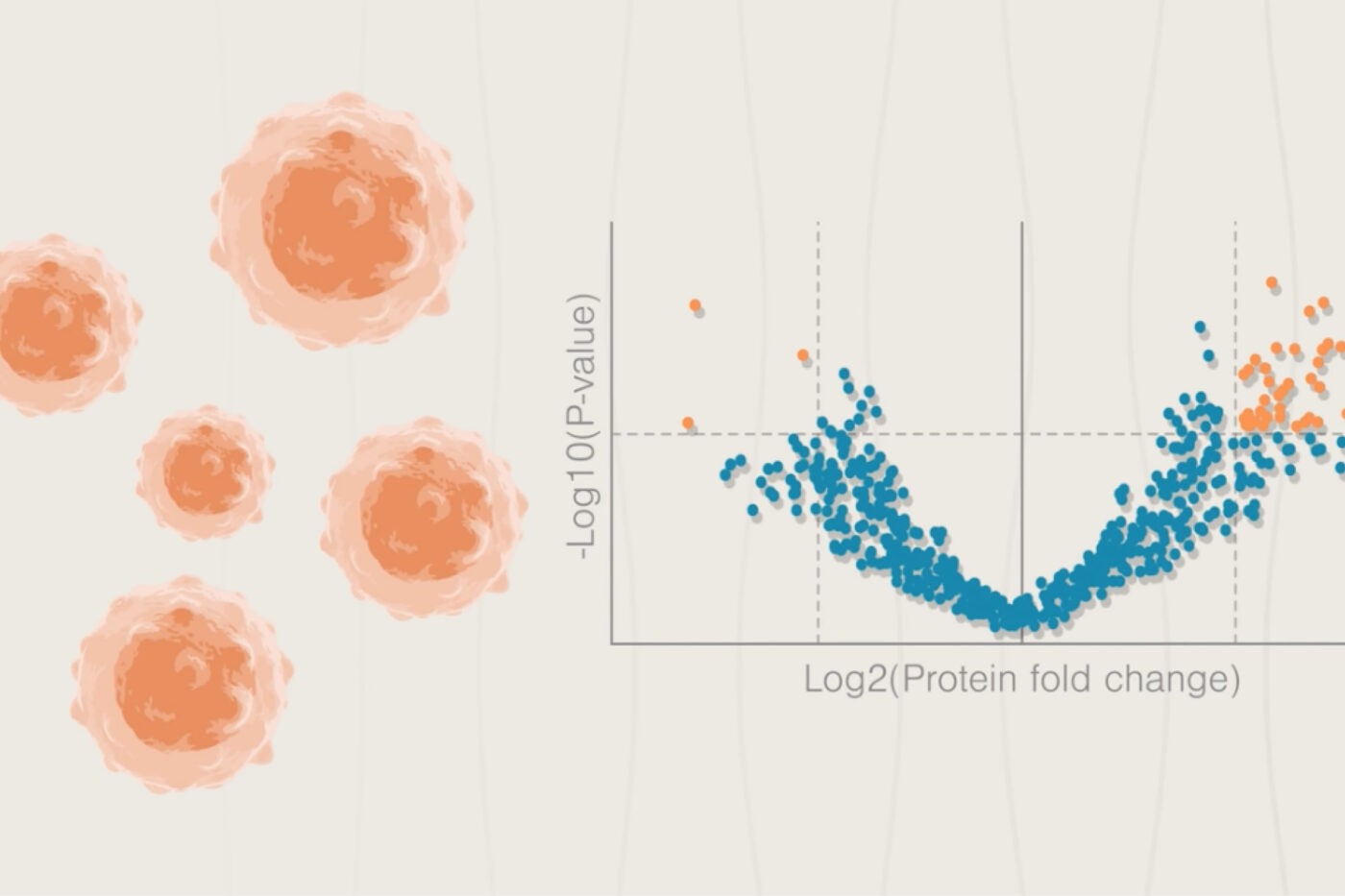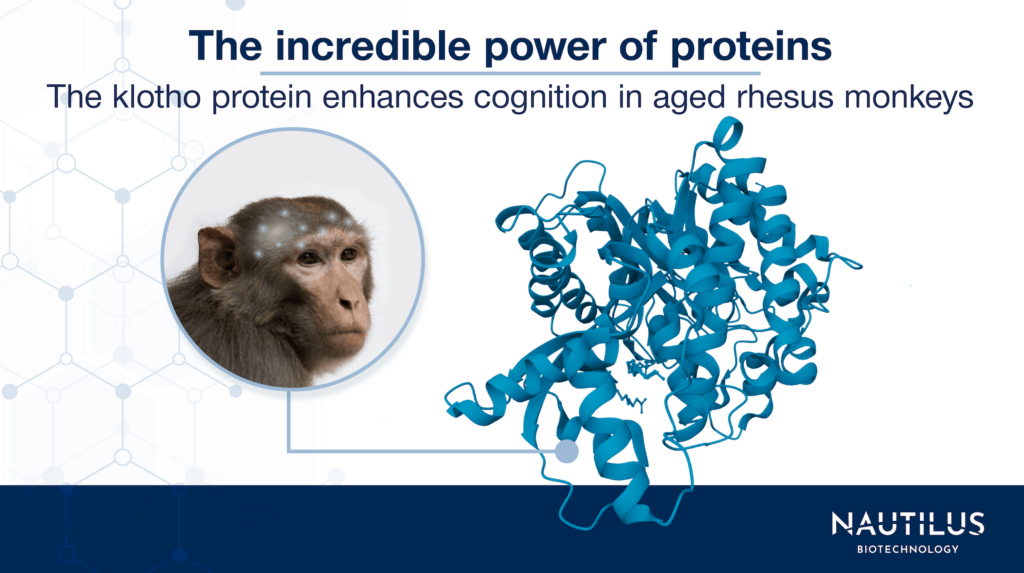
The incredible power of proteins: The klotho protein enhances cognition in aged monkeys

Tyler Ford
September 7, 2023

Getting old, like death and taxes, has always been seen as inevitable, but new research is beginning to question that age-old assumption. Recent studies hint that aging might be treated liked a disease with recognizable symptoms and mechanisms.
There’s no evidence we can stop aging, but many scientists now think we can slow it down and treat symptoms of aging like muscle loss, bone frailty, and cognitive decline. With aging populations in countries around the world and increased costs associated with aging, mitigating the impacts of growing old could be a boon to people everywhere.
Proteins play an important role, for better and worse, in many aspects of aging. On the positive side, new research published in the journal Nature Aging, shows that one protein, klotho, could be a powerful neuroprotective agent. When researchers injected aged rhesus macaques with the protein, their cognition improved significantly, building on previous studies in mice showing similar results. Macaques are relatively closely related to humans, meaning klotho could have similar effects in us.
In our “Incredible Power of Proteins” series, we highlight new and exciting research using proteins to address major issues in human health and the wider world. Proteomics, the study of all proteins in a biological entity, is constantly identifying new functions for proteins and revealing their potential therapeutic uses. Today we dive into all things klotho and discuss the evidence supporting its ability to fight aging. For more insights into the incredible power of proteins, check out our posts on some of the most important proteins in the body and the relationship between FGF21 and alcohol.
New insights into the klotho protein
The klotho protein was discovered in 1997, when researchers found that altered forms of it caused mice to age faster. The mice experienced increased levels of arteriosclerosis, skin atrophy, osteoporosis, and emphysema. They named the newfound protein klotho, after one of the mythological Greek Fates who spins the thread of human life.
Scientists would eventually find several versions of the klotho protein, and subsequent research indicated it is involved in a number of age-related conditions. Researchers have since found that lower levels of the protein are associated with frailty, disability, and decreased muscle strength in older (human) adults. Perhaps most astonishingly, mice with more klotho live longer.
In the recent Nature Aging study, a team of researchers expanded upon previous studies by testing klotho’s effects in primates. The scientists gave 18 aged rhesus macaques injections of the klotho protein. Then, they watched to see how the macaques performed on a test of cognition. In the test:
- A treat was placed in one of several containers.
- The containers were hidden from view for a set period of time.
- The containers were returned to the monkeys.
- If a monkey was able to pick the container with the treat, it got the treat.
The monkeys were tested both before and after getting an injection of klotho and, compared to a baseline test given before the injections, the monkeys all got significantly better at finding the treats. This indicates klotho helped improve their cognition. Interestingly, the effects persisted for at least two weeks.
Given the effects in monkeys, klotho may have similar impacts on humans. The monkeys had a mean age of 22, which is comparable to around 65 years in humans. This is roughly when human cognitive abilities begin to decline, and it appears that klotho levels decrease as humans age. In addition, other studies have shown that klotho can protect neurons against injury caused by proteins associated with Alzheimer’s.
These combined results point to some promising therapeutic applications of klotho in aging. While the exact mechanisms behind klotho’s neuroprotective effects are yet to be determined, future work, including functional proteomics studies, should provide valuable insights that may support its therapeutic development.
Proteomics could reveal new and important proteins in aging and beyond
Klotho is just one protein in the human proteome, much of which is vastly understudied. The human proteome contains around 20,000 proteins encoded by genes, and potentially millions of variants of those proteins known as proteoforms. Just 5,000 proteins are regularly studied, meaning we know very little about the vast majority of proteins.
There may be many more proteins like klotho that play important, as-yet-unexplored roles in human biology. Such proteins, while important, might be found in very low abundance and get overshadowed by more abundant proteins in traditional proteomic analyses. New tools, like the Nautilus Proteome Analysis Platform, are designed to be capable of conducting discovery proteomics studies of the entire proteome at the single-molecule level. These will give scientists the unprecedented ability to ask and answer all manner of questions about protein biological functions, roles in disease, potential in therapeutics, and much more!
MORE ARTICLES
